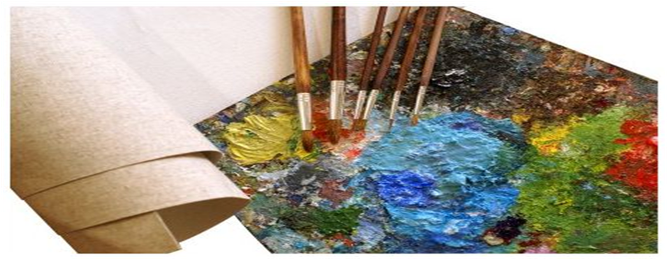OPINION
THE DISCOLOURED CANVAS OF OUR PAST
In dealing with the destructive legacies of our past; we must first acknowledge that we are not starting from a blank canvas. The canvas of our past is already loaded with many pre-colours, has a restrictive palette from which to choose, is framed in certain ways, and is still missing many important brush-strokes. Indeed, the ‘past’ remains an extremely complex, sensitive, emotive and divisive issue; where we have already applied much of those enduring pre-colours in overladen layers, until that canvas itself has become rather rigid, inflexible and deeply stained with disputed colours.

Whilst much of the detail has been applied in colours from our traditional palette, which themselves do not tend to mix very well, we also have an inherent preference to view these in a restrictive format, with no discerning artistic eye for the intricacies that would allow the more subtle and diverse shades of colour which exist, that would provide a much richer interpretation. Indeed, it is our over-reliance on narrow and parochial viewpoints; that dictate the actual depth, breadth and distorted colour of those brushstrokes we do offer, and which can often render us incapable of looking beyond our own brand of colour.
When presented with an already deeply discoloured canvas, any new brushstrokes will naturally remain reticent, and our traditional palette of competitive-colours will continue to dominate. This ensures that we typically continue to reject all colours which don’t fit within our carefully constructed ideological framing, as these are not colours we want on the canvas or a brushstroke we are prepared to acknowledge or accept.
If we are to re-imagine, re-consider and re-paint our past; It is only through carefully peeling back those deeply layered pre-colours and exposing them to the light of reality, that we can allow ourselves to return to a blank-canvas, construct new framing, and supplement the palette available to paint a brighter future. Only then can any new brushstrokes be applied with hindsight, imagination, generosity and caution.
Yet it is not just our lack of vision and a distorted ideological optical nerve that keeps us colour-blind, but also our language and how we articulate those colours we have applied.
There is no doubt that much of our language has recently become heavily underlaid with perception and accusation and pinned down with rigid ideological tacks. Yet we must remember that language is only the interface with our own thoughts and their outward expression, with thought itself more often a product of learned and predictive behaviour, than some new construct. That we invariably make sense of our present by accessing that back-catalogue of previous experience we have accumulated, which then forms the twisted scaffolding to build our so-called ‘new’ understandings around, is still an obstruction in our thinking.
In understanding our present; we still refer to the phrasebook of our past. Of course, we invariably cling to what we know; that which we were most familiar and comfortable with; as that which gave us the greatest certainty and meaning. It is a human trait forged in our own insecurity. And it was in OPPRESSION, RESISTANCE & DEFENCE where many of us found our greatest meaning and certainty, that leaves us clinging obsessively to the language that best encapsulates this mind-set rather than face an uncertain world. That we invariably fall back into our ‘default positions’ is understandable, as it is the defence from those insecurities. Yet in this exhumed-language we all become distortions of the truth as our lives play out within the parameters of those distortions.
In this way, our already pre-set and rigid interpretations of our past, and the limitations of our linguistic and imaginative interfaces, become our most insurmountable barriers to negotiate in dealing with it. And the reality remains; we can’t hope to solve the complexity of the problems that face us with the same mindsets that created those problems in the first place.
